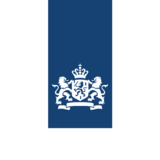Community / Land projects / Improved water allocation and irrigation efficiency in Ziway-Shalla basin
Improved water allocation and irrigation efficiency in Ziway-Shalla basin

€0
10/18 - 04/24
Concluído
This project is part of
Implementing Organisations
Donors
Data Providers
General
Based on a systematic approach, the project aims to address the key problems causing the decline in water quantity and quality in the Ziway-Shalla basin, namely: - Unchecked and inefficient use of irrigation water by smallholder horticultural farmers;- Lack of transparent and fair water allocation and sharing model;- Limited institutional framework and capacity for basin management;- Poor watershed management causing erosion and sedimentation.The partners simultaneously engage in four groups of activities. Work Package 2 focuses on supporting smallholder farmers to improve their productivity and water use efficiency. Demonstration fields will be established at 150 lead farmers at multiple locations; another 650 farmers will participate in the pilot. Through training and field days, partners aim to broadly demonstrate a business case for improved farming practices with efficient irrigation, reaching the majority of irrigation farmers in the area.The local public authority responsible for the basin management – RVLBA – will be supported to develop, in a participatory way, a Water Allocation Plan (WAP) based on water permits and tariffs, and ensure that this plan is endorsed by stakeholders. Water meters will be introduced at the pilot group by the end of the project (Work Package 3). Furthermore, Dutch expert partners will engage in institutional strengthening of RVLBA, aiming to enhance the organisation with the right infrastructure and capacities to manage the basin resources responsibly, based on real-time data and clear internal procedures, while covering its operational costs from water revenues (Work package 4).Finally, in Work package 5, the project will undertake a range of watershed interventions at the most critical sites, generating on-farm benefits for upland farmers while increasing their awareness with regard to unsustainable land management, subsequent erosion and long-term consequences of such practices.By the end of the project, results will be achieved in terms of decreased water abstraction and sedimentation, with improved income for smallholder farmers. Conditions will be in place for broad rollout of the Water Allocation Plan, including the introduction of water meters at irrigated farms, which is the precondition for sustainable management of the water resources in the area.



